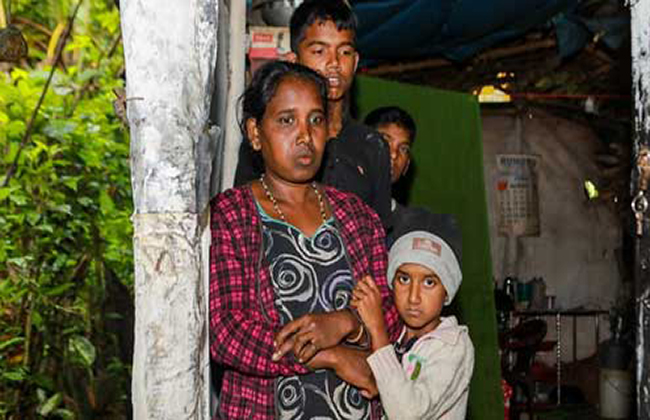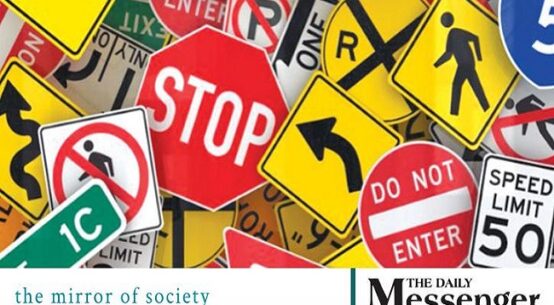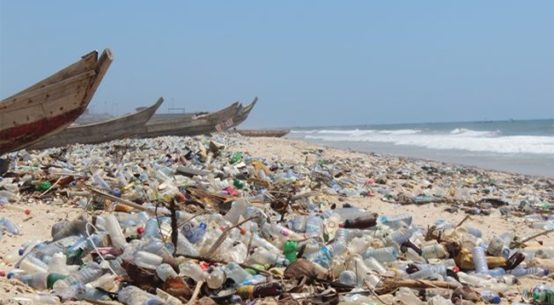
On February 4, Sri Lanka commemorates 75 years of Independence. But it will not be the extravaganza of the past years, the minaturised imitations of the grand displays on Moscow’s Red Square or China’s Tiananmen Square.
Still, a critical question has been reverberating in the community ever since the government announced a scaled down celebration to commemorate 75 years since Britain relinquished power in 1948.
After defaulting on the country’s debt servicing last April for the first time in its post-independence history and being forced to resort to massive printing of money to meet state expenditure, does Sri Lanka need to celebrate independence day this year however downsized it would be?
Particularly so, when President Ranil Wickremesinghe’s government itself claims Sri Lanka is struggling economically and it would take years to recover from its current chaos created by leaders who inexorably pushed it to the tip of the abyss with stupid economic policies, wasteful expenditure and wide- scale corruption and fraud.
While imposing unbearable new taxes and other restrictions on the daily lives of the people, driving them further into penury with school children going without meals, fainting in their classrooms and in need of medical treatment which itself is becoming scarce, the country’s leaders don’t seem short of resources for celebrations.
Even the country’s diplomatic missions will be holding their annual independence day celebrations as the invitation I received indicated, feasting their countrymen as best as they could.
Yet over the last couple of months the government has been selling the story that it has no funds to pay for the Local Government elections due in March. A strange enough claim after President Ranil Wickremesinghe, in one of his other roles as finance minister, presenting the budget for 2023 last November allocated funds for the election and parliament, which oversees public expenditure, approved it.
Now, the very persons who allocated money just three months ago claim to lack funds for a constitutionally required election. Punning on the old Harry Belafonte calypso, there is a hole in the budget, said some wag on social media.
It is this contradiction in government conduct that an already enraged people find inexcusable. Having got rid of one elected president– Gotabaya Rajapaksa– who surreptitiously fled the country last July when mounting peoples’ protests demanded the Rajapaksa clan quit the government, they find themselves confronted with what Sri Lankans have come to see as a Rajapaksa clone– and now derisively call him Ranil Rajapaksa– thrust into the presidency to keep the family’s political fires alight.
The Roman poet Juvenal dismissively called the delusionary performances staged by the Roman emperors of the time to distract their discontented citizenry, “panem et circensus”- bread and circuses.
Bread, like some other essentials, might be scarce or priced beyond the reach of many of its 22 million people. A few months back, the UN agency UNICEF reported that 5.7 million Sri Lankans including 2.3 million children, are in need of humanitarian assistance and the numbers are likely to rise in the coming days.
But the country’s leaders are not beyond performing their own circus acts. A few days back President Wickremesinghe appointed two more cabinet ministers bringing the total to 22.
Within hours Sri Lankans with their innate sense of humour were on social media branding the new cabinet “Ali Baba and the 22” with the doors to the cabinet still open for more acolytes chosen not for integrity and competence but loyalty.
Before the two new ministers fattened the cabinet, splicing off the portfolios of two existing ministers, President Wickremesinghe a couple of months ago appointed 37 state ministers leaving room for three more.
Sri Lanka’s bloated ministerial ranks would surely be one of the largest in today’s parliamentary democracies. Not only is it large in numbers but the perks offered to ministers and state ministers is stunningly staggering–salaries, free housing, several expensive vehicles with fuel, free utilities such as electricity, water, telephones up to a point, several personal staff with paid salaries, armed personal security with escort vehicles, a special allowance for each day they attend parliament, state pension after five years and other facilities not generally known.
While the government is prepared to splash state funds on bolstering party cadres and lickspittle who have creamed off state assets, in the last couple of months it has been using every ruse in the books-and some which are not in them- trying to deprive the people of their constitutional right to the franchise, by blocking the Local Government elections due shortly.
This election, last held in 2018, is for 340 municipal councils, urban councils and village bodies is scheduled for March 9—the date set by the independent Election Commission last month.
But as the day for the election, as constitutionally required, neared, the attempts to stymie it began with grandees of President Ranil Wickremesinghe’s United National Party (UNP) and the Rajapaksa clan-run Sri Lanka Podujana Peramuna (SLPP) that is propping up Wickremesinghe with its parliamentary majority, asserting that economic recovery must precede elections.
Ministers and even state officials were trotting out excuses that there was no money to fund elections, expecting the populace to have forgotten the budgetary allocation passed by parliament a few months back.
As this was being written, internationally-known legal academic and former foreign minister Prof GL Peiris was telling the media the government had made seven attempts to try and stop the election including an affidavit to the Supreme Court filed by the secretary to the finance ministry claiming the state of the economy precluded holding elections right now.
The latest ruse was a law called the Election Expenses Bill to control spending for elections hurriedly passed by parliament. If, as Justice Minister Wijeyadasa Rajapaksa said, this proposal has been hanging fire for years, why the rush now, the opposition and anxious voters asked.
Like the opposition, the public too smelled a rotten rat. It was seen as another attempt to derail the elections by calling for the provisions of the bill be incorporated which would call for more time.
Despite all the public bravura, both the Rajapaksa-controlled SLPP and Wickremesinghe-led UNP which was swept into oblivion at the 2020 general elections, fear that given the mood of the country which rose in mass protests for some seven months last year leading to the resignation of President Rajapaksa and three of his brothers from the cabinet, they would suffer ignominious defeat.
Especially so the UNP which lost every single seat including that of party leader Wickremesinghe who managed to creep back into parliament one year later through a clause in the electoral law.
Not only would a poor electoral performance by the SLPP and UNP which have now joined hands make governance difficult and troublesome, it would also strengthen public opposition both to the Rajapaksas and President Wickremesinghe who many argue-and rightly so-as a leader rejected by the country two years ago and lacking a popular mandate to rule the country.
So what one sees now is a symbiotic relationship between the executive headed by Wickremesinghe and the legislature controlled by the Rajapaksas, running the country and using outdated laws- some dating back to British times- to beat back public dissent, employing the security forces to trample on the constitutionally guaranteed freedoms of the people- free speech and expression, of association and assembly and peaceful protest.
It also raises issues about the independence of the Attorney-General and some of the independent institutions set up under the constitution which are believed to have come under pressure during the Wickremesinghe presidency.
With two arms of the state- the executive and legislature under the control of the Wickremesinghe-Rajapaksa- led cabal and backed by the security forces as recent event have shown, Sri Lanka’s increasingly beleaguered populace can only rely for justice on the third arm of the state- an independent judiciary.
Over the years the judiciary has, now and then, been under pressure from dictatorial leaders who have not been averse to tamper with justice and the judicial process, sometimes denying impartial, independent judges their rightful place as chief justice or appointing friends or those amenable to the judiciary.
But two recent judgements by the Supreme Court have resurrected public faith that the judiciary could be relied on to safeguard the constitution and the peoples’ constitutional and human rights against state abuse of the law and the battering and brutality by the security forces.
A few months back the government tried to push through a “Bureau of Rehabilitation Bill” ostensibly to help treat and rehabilitate drug addicts and other drug users. Under cover of that it hoped to incarcerate political dissidents, activists and others which state security would identify those they do not like as ‘trouble makers’.
So, it included among those to be included under the law “ex-combatants, members of violent groups, violent extremist person and any other person or group of persons”.
The Supreme Court saw through this as an attempt to round up any person the authorities considered a political nuisance and hold them without recourse to the law. The court struck down the clause.
Holding that the Bill as a whole violated the constitution, it said it could be acceptable if certain clauses were amended. One of the clauses it found repugnant was the one cited above which the court wanted deleted, leaving rehabilitation open only to drug dependent persons and those identified by law as in need of rehabilitation.
In mid-January the Supreme Court delivered a landmark verdict which held former president Maithripala Sirisena, secretary of the defence ministry, police chief and top- ranking intelligence officers, of dereliction of duty and “failure to act” when valid and clear intelligence was passed on by foreign sources of an impending terrorist attacks by Islamic extremists on churches on Easter Sunday in 2019.
Some 270 persons including foreigners were killed and several hundred wounded in these attacks on churches and Colombo hotels.
Since these were civil cases, President Sirisena was fined 100 million rupees and the others lesser amounts. Sirisena as a former president was no longer entitled to immunity, a lesson for other former and future presidents that they too are liable to civil and criminal action such as corruption and human rights violations once they cease to hold office.
These judicial judgments bring some hope to the people that the citadels of power are vulnerable and could be breached by a strong and upright judiciary, the only institution now left to protect and uphold the country’s democratic traditions and norms.
If the judiciary is badgered, the last resort is too bloody to contemplate.
Neville de Silva is a veteran Sri Lankan journalist who held senior roles in Hong Kong at The Standard and worked in London for Gemini News Service. He has been a correspondent for the foreign media including the New York Times and Le Monde. More recently he was Sri Lanka’s Deputy High Commissioner in London.


